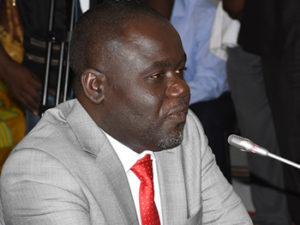Tax waivers on electric vehicles will boost green transportation – Minister

Mr Kwaku Ofori Asiamah, the Minister of Transport, says the introduction of tax waivers on the importation of electric vehicles will help boost uptake of electric vehicles in the country.
He said the Policy was keeping with efforts by the government to modernise and promote the decarbonisation of the transport sector within the context of a global call for a Net-Zero Emission Future.
Addressing participants at the 2024 Logistics and Transport Conference and Exhibition in Accra, the Minister urged stakeholders to develop expertise within the green and circular and economy sector and take advantage of emerging opportunities.
The Conference, organised by the Chartered Institute of Logistics and Transport (CILT) was on the theme: “Logistics & Transport Operations in the Green & Circular Economy.”
It also marked the Annual General Meeting of the CILT.
The government has announced a waiver of import duties on electric vehicles designated for public transportation for the next eight years.
In addition, import of semi-knocked down and completely knocked down electric vehicles brought into the country by registered EV assembly companies for the same eight-year period would also enjoy tax waivers.
Mr Asiamah said the government’s intention was to “electrify the road transport system” focusing on public transport vehicles.
“The principal objective is to ensure that no new petrol and diesel vehicles will be sold or imported into this country after the year 2045,” he said.
The CILT Conference assembled experts and stakeholders in the sector to discuss issues within logistics, transport and supply chain operations.
Some key personalities that participated in the Conference are: Dr. Daniel McKorley, Executive Group Chairman of McDan Group of Companies; Chief Teete Owusu-Nortey, CILT International President; Mr Jan Steenberg, CILT International President-Elect, and Mr Mark Amoamah, CILT Ghana President, among others.
Mr Amoamah said the collective commitment of stakeholders to facilitating efficient, resilient, and eco-friendly logistics and supply chain operations could significantly contribute to the global sustainability agenda.
“By embracing the principles of the circular economy, we can transform our practices, design systems that minimise waste and make the most of our resources and consequently meet the needs of the present without compromising the ability of future generations to meet their own needs,” he said.
Chief Owusu-Nortey expressed concern that in spite of the Supply Chain, Logistics and Transportation profession being a major employer, the sector had been undervalued.
He said due to challenges in sector it was hard to encourage new talents and professionals into the profession.
Chief Owusu-Nortey proposed November 3 as the International Day to acknowledge and celebrate the contribution the industry plays to the society as part of his legacy projects as President.
Source: GNA
